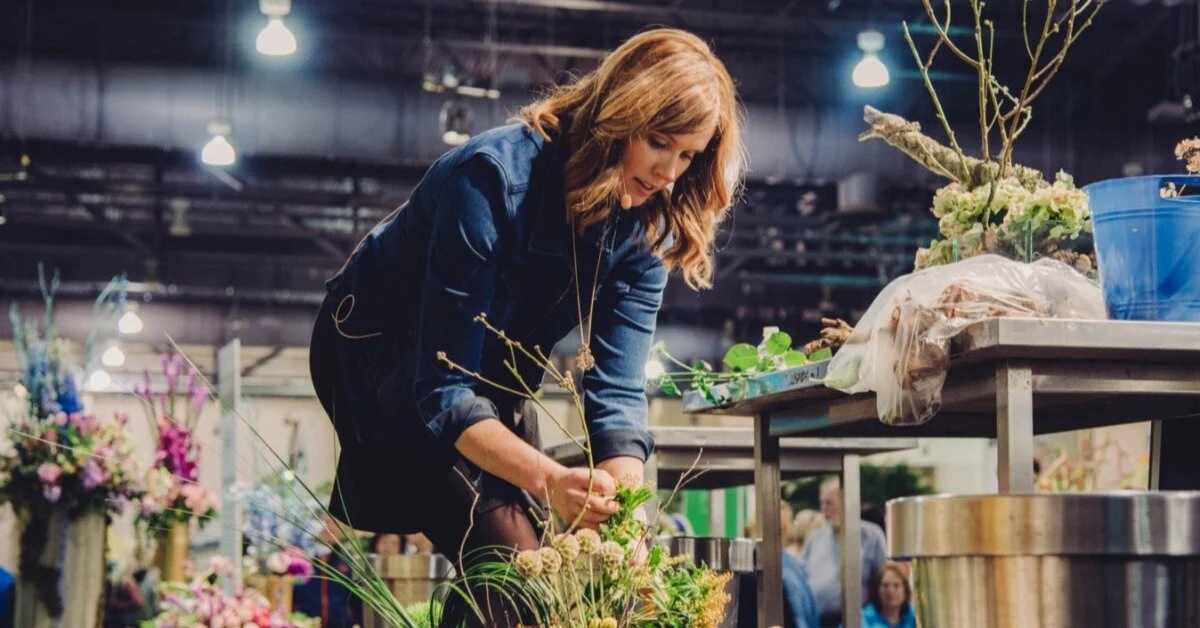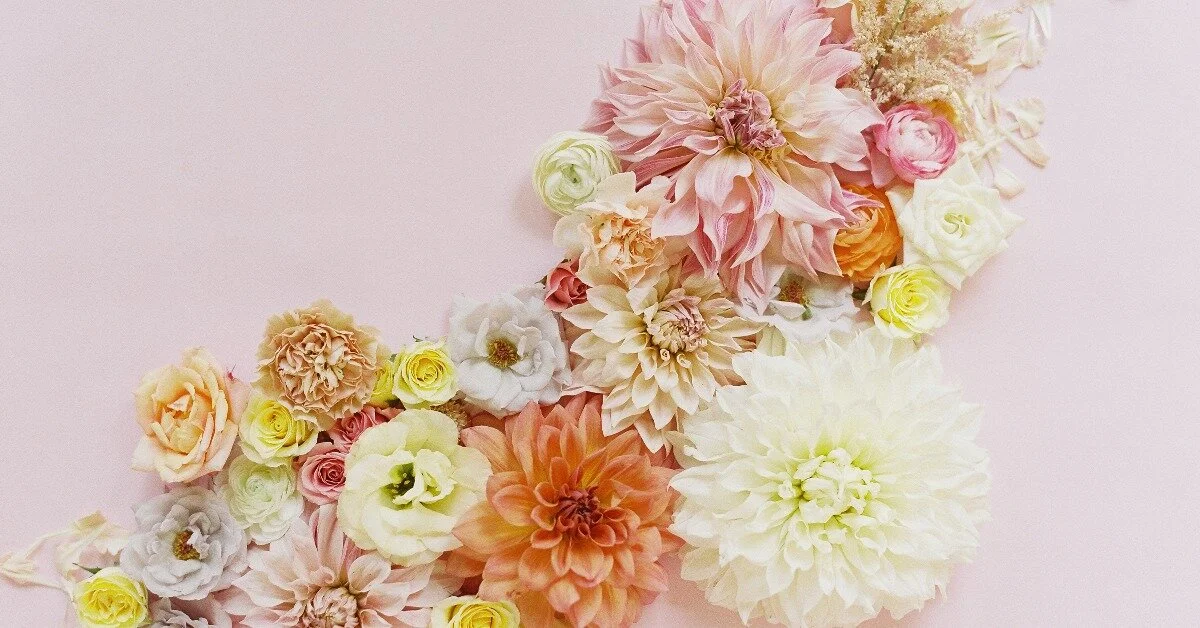8 Outstanding Tips for Excelling in Retail Floral Work
Who doesn’t love flowers? But how many times has someone come into your shop or business and commented about how much fun it would be to “play” with flowers all day? I don’t know about you, but I take my business very seriously, and I expect my employees to care as much as I do. But why does it matter? In an age where you can get flowers almost anywhere ($6 for a dozen roses at the gas station anyone?), professional designers need to be, well, professional!
I come to the flower world from a corporate and entrepreneurial background. I always loved flowers, but I didn’t know anything about them and would spend my last $5.00 on a bunch of tulips because they made me feel good. Fast forward a decade or so, and I’m planning a very simple wedding to my beloved on the front porch of our Victorian farmhouse, surrounded by blooming lilacs. I went to the local florist and was shocked at what he was going to charge me for a few flowers for a small, family wedding. So, being a can-do kind of gal, I got my tax ID number and did the flowers myself (the bouquets weren’t great, but they did the trick). And my new career was launched.
Nine years have passed, and it’s been eight since we purchased the shop (yes, the one with the outrageous quote). I work hard—you all know this is not an easy business—schlepping buckets filled with water and flowers, hauling boxes of vases, standing all day, dealing with customers of every stripe. Add to that the “art” of flower ordering and keeping the workflow moving, all while trying to earn a living. Sometimes I feel like a juggler! I’ve learned (or relearned) a few things that I would like to share with you.
1. The customer is always right, even when he’s wrong.
Customers are too hard to come by, and you can’t afford to lose even one. Always listen, let them rant, and then apologize. No excuses—I actually thank them for their complaint because then I can address the issue so it won’t happen to someone else. Do whatever you can to make it right or at least make it up to them. I would rather spend $20 in product and labor than have a negative review on Yelp.
2. Create and live your brand.
Your brand is your promise to clients. Think of the great brands out there—what do you expect from an Apple, Nike, Kate Spade, or other popular brands? What do you want your customers to expect from you? Our promise is “always excellent,” and we don’t just mean the flowers but the whole experience. Our brand has a personality—people buy from people and brands they like.
3. It’s not “just flowers.”
The couple we bought our shop from had a bizarre (in my opinion) position about their orders. If they made a mistake, it was “just flowers.” Is it “just flowers” when funeral flowers are not delivered? No—it’s not just flowers. Those flowers were an expression of love, sympathy, solace, happiness, and celebration. I take that very seriously, and you have to, too.
4. Floral design is a profession.
If you don’t act like a professional, you are devaluing yourself and your business. Remember that gas station with the dozen roses for $6? Or someone’s friend who “loves flowers” who will do the flowers for their friend’s wedding. Your clients have no idea of all the things that can go wrong—and as a professional, you know how to anticipate and deal with all of it. Give your clients a reason to respect you and they will feel good about buying from you.
5. Watch the numbers every day and every week.
Most POS systems have the tools to help you track your COG and employee costs. I do it every week—and have been able to maintain a 14% margin! We worked with a consultant when we first started; there are a lot of resources out there (including Team Flower) to help you manage your business better. I don’t know about you, but this is my livelihood and retirement plan all in one.
6. Always think about how you can add value—to your customer, your business, your products.
If the flowers were all your clients wanted, they would buy all their flowers from the supermarket. Define that value and build on it. We don’t sell flowers; we sell an experience that is focused on flowers. Big difference. It sets us apart from the competition and allows us to charge premium prices.
7. Never sell, only advise.
Most people are like me when I was getting married: I didn’t know anything. I had no idea what I would need to spend to send an appropriate flower gift. Listen to your clients, and if they don’t know what they want, make an appropriate suggestion, describing it to help them form a picture in their mind. Don’t suggest something big when it’s not warranted. But do suggest something big when it is—they may not have thought of 40 roses for a fortieth wedding anniversary.
8. Have fun!
This is a great business! I genuinely love what I do. Yes, it’s physically demanding and the margins are tight, but FLOWERS! I love learning all about flowers and am always surprised when industry veterans don’t know the difference in varieties of common blooms, let alone some of the interesting ones we carry. And I enjoy the challenge of managing a business—consistently hitting that margin makes me feel on top of the world (and paid for our last vacation). And it’s not just flowers I’ve learned about: People think my website product photographs are taken by a professional (me!). I’m always developing new products with my team and in general continually learning something new.
In my view, the flower business is 25% design, 50% sales and marketing, and 25% financial and human resource management. Even if you don’t own your business, understanding basic business principles will make you extremely valuable to your employer. Don’t underestimate the power of the business of flowers!










